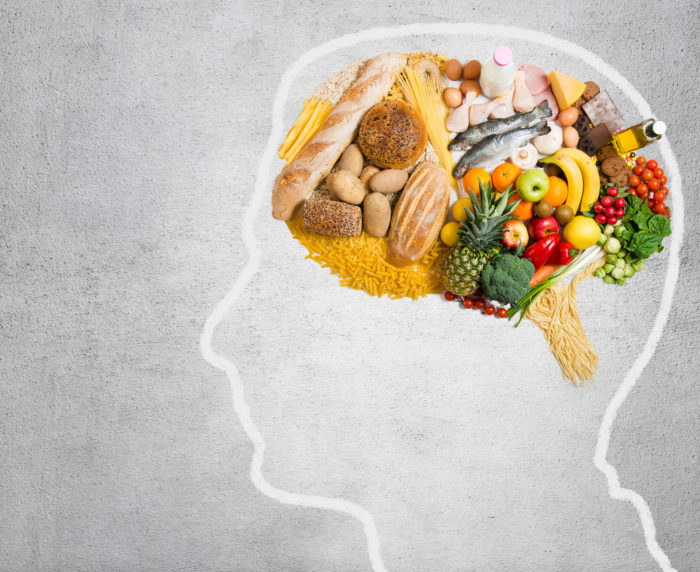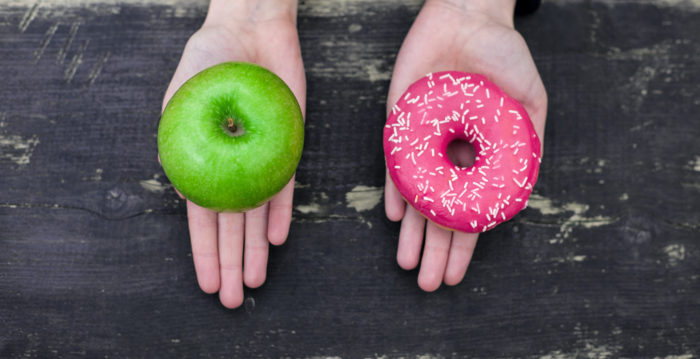This post may contain affiliate links.
Move over fat, sugar is the new public enemy #1 in your kitchen cabinet.
For years, the nutrition and food industries have blamed dietary fat – saturated fat in particular – for the rise in chronic diseases like heart disease, obesity and diabetes.
But with the case against fat crumbling, many mainstream health and wellness experts have now targeted sugar as the primary culprit of modern disease.
Dr. Mark Hyman, Dr. David Lustwig, Gary Taubes, and Dr. Robert Lustig are among the most prominent leaders of the crusade against sugar. These men commonly equate the dangers of sugar with those of drugs like cocaine and heroin.
In Gary Taubes most recent book “The Case Against Sugar” he describes sugar as “a drug that can intoxicate us….It doesn’t have to be injected, smoked, or snorted for us to experience its sublime and soothing effects.”
Dr. Mark Hyman believes that “some of the worst, deadliest drugs on the planet [are] sugar and anything that turns to sugar in your body,” and that “sugar is more powerfully addictive than alcohol, cocaine or even heroin.”
Are these statements true? Is sugar really that bad for us?
The Carbohydrate-Insulin Model of Obesity and Disease
These anti-sugar advocates’ extreme vendetta against sugar primarily stems from their belief in the Carbohydrate-Insulin Model of Obesity.
They believe obesity is the result of high insulin levels and not simply an excess of calories. This theory has fueled both the low carb movement and the fear that dietary carbohydrates turn to sugar and spike insulin, leading to increased fat uptake into the fatty tissues for storage and “insidious weight gain.”
In this theory, increased insulin reduces blood energy levels, stimulating fatigue and hunger, causing a vicious cycle of overeating and fat gain. High amounts of fructose found in sugar and high fructose corn syrup overloads the liver’s capacity to store it, leading to inflammation, non-alcoholic fatty liver disease and insulin resistance.
Dr. David Ludwig sums up the overarching theory with this quote: “Overeating doesn’t make you fat. The process of getting fat makes you overeat.”
To prevent chronic disease, these advocates advise a diet very low in carbohydrates to lower the amount of circulating insulin. Sugar is to be quit entirely, because even a small indulgence could raise your insulin, sending you on a sugar fueled bender!
Dr. Mark Hyman dramatically sums up why he believes sugar eaters must quit cold turkey: “addicts can’t have just one line of cocaine or just one drink.”

Is Sugar Really “the New Cocaine” and the root of all disease?
The constant comparison of eating sugar to snorting cocaine is an absurd scare tactic. Eating sugar in the context of an overall healthy diet won’t send your health into a tailspin, and certainly doesn’t make someone an addict.
Diets high in processed, sugary junk food are playing a role in the rise of chronic disease, but sugar consumption is not the sole cause of chronic disease. And insulin is a complex hormone that does far more than simply promote fat storage.
Blaming sugar as the root cause for modern disease is way too simple.
Disease is almost always multifactorial and not a result of one single variable. A complex web of epigenetic factors (diet, lifestyle, social relationships, etc.) and genetic factors will determine your health status. Not solely your sugar intake.
What Does The Science Really Say?
It’s easy to poke holes in the “science” that backs the insulin-obesity theory. Stephan Guyenet, PhD does this in spectacular fashion in his unbiased reviews of Gary Taubes’ and David Ludwig’s books that clearly separate fact from the fiction in the sugar debate.
Using the anti-sugar logic, high-carbohydrate diets cause obesity and chronic disease. Dr. Guyenet’s reviews clarify both the scientific literature and epidemiological data that invalidates this theory.
Contrary to popular belief, there are no large studies that validate the carbohydrate-insulin-obesity hypothesis. In fact, a small but well-designed recent NIH study seems to provide strong evidence against the carbohydrate-insulin-obesity hypothesis.
This study used a crossover design, putting each participant on a low-fat diet for a 6 days and a low-carb diet for 6 days to compare how macronutrient shifts affected insulin levels and body fat loss within each participant. Participants ate at a 30% caloric deficit in each phase to facilitate fat loss.
As expected, insulin levels were 22% lower while the participants were eating the lower carb diet. Interestingly, body fat loss was 50% higher in the low-fat group compared to the low-carb group. This study undermines the oversimplified concept that higher insulin levels lead to increased body fatness.
Even research that Taubes himself funded seems to undermine his theory. He helped fund a study that compared two diets with a ten-fold difference in sugar content. The high carbohydrate group with 25% of its calories from sugar actually resulted in slightly more body fat loss than a ketogenic diet that had only 2% of calories from sugar (when calories were equal.)
Yet Taubes still fervently believes that insulin, carbohydrates and sugar are the root of all obesity and overeating in general.
To further disprove the carb-insulin-obesity theory, let’s consider hunter gatherer populations that seem to thrive on diets high in sugar and carbohydrates. (Dr. Guyenet’s review does a great job summarizing the evidence.)
The Hazda tribe receives 15% of their total caloric intake from honey alone, not including their fructose intake from fruits. The Mbuti hunter gatherers put the Hazda’s sugar consumption to shame consuming 80% of their diet from honey during the rainy season! Yet, neither the Mbuti or the Hazda developed insulin resistance, obesity or any other chronic modern diseases.
A high sugar diet clearly doesn’t directly cause body fatness or disease, otherwise these tribes would be incredibly overweight. Let’s explore the biochemical reasons why these hunter-gatherers stay lean and healthy despite eating a high sugar diet.

Insulin is not the enemy
Insulin is far more than a fat storage promoter.
As we already discussed, higher insulin levels have not been shown to automatically produce higher body fatness. We need to understand the broader role of insulin, rather than oversimplifying it as “the fat storing hormone.”
Insulin serves as our body’s primary signal of short term energy status, and is essential in driving key nutrients into our cells and for cell signaling. For example, insulin signaling must be high enough to tell the hypothalamus that we have enough fuel to reproduce and to activate thyroid hormones.
This explains why low carb diets often cause hypothyroid symptoms or amenorrhea in women: the body adapts to preserve fuel by slowing down metabolism and shutting down fertility.
Chris Masterjohn, PhD recently published a podcast about how the energy status of the cell always overrides insulin signaling. He states that “insulin may tell a cell to do something, but cells don’t take orders like that.”
Insulin tells the cell about what is going on in the rest of the body, but the cell surveys its own needs and abilities to decide whether and to what degree it responds to that message. The cell’s energy needs are the primary driver on how we metabolize fuel, not insulin signaling.
The ability of the cell to override insulin’s signal explains why the NIH study demonstrated that higher insulin levels in the low-fat group didn’t cause fat storage. With the 30% calorie deficit used in that study, the cells needed more energy, so the cells necessarily overrode the insulin’s anabolic signaling.
Context Is Key
The belief that sugar in any amount will necessarily cause disease is false. The entirety of one’s diet, lifestyle, and overall health should be weighed to determine if moderate sugar consumption is a good fit. Plus, creating extreme fear around sugar may lead to an unhealthy or disordered mindset around food.
Chris Masterjohn was recently on our podcast, where he discussed Dr. Weston Price’s work; a great example of how some flour and sugar is fine in the context of an overall nutrient dense diet. According to Masterjohn, “whether refined sugar is bad for you or not is dependent on how displacing is it to the other nutrients in the diet.”
Dr. Price, a researcher and dentist in the early 1900s, connected the rise of sugar and refined flour as dietary staples with the rise in tooth decay and other modern diseases. But unlike the anti-sugar advocates of today, Dr. Price didn’t necessarily blame these foods directly for causing the disease. (And he certainly didn’t suggest it was their carbohydrate content to blame.)
Instead, these foods were harmful because they displaced nutrient dense foods with nutrient poor foods. Rather than eating a diet rich in nutritious foods like eggs, organ meats, grass-fed meat, dairy, vegetables, and fruits – as we had done for thousands of years – we started to rely on the bulk of our calories coming from highly refined sugars and flours, which are devoid of any nutrients unless fortified.
As a practicing dentist, Dr. Price would bring his patients in for one meal a day where he would load them up with nutritious whole foods. They still consumed refined, nutrient-poor carbohydrate foods like grains and sugar the other two meals of the day.
Despite this, many of his patient’s dental cavities were healed with just the addition of one nutrient-packed meal a day.
Dr. Price found he didn’t need to remove all refined foods from their diet as long as he was able to cover their nutrient needs with one meal. This demonstrates the healing power of a diet rich in nutrients, not specifically low in sugar.
For most people eating a whole food, nutrient dense diet, eating a sugary dessert at a celebration or having a spoonful of sugar in your coffee is not going to negatively affect your health.
While you may not want to load up on refined sugar at every meal, there’s no need to constantly feel deprived or even fearful at social outings and holidays.
Eating sugar is not a morality issue or a lack of discipline.
In my nutrition coaching practice, I find my clients who are well nourished are less likely to overindulge in sugary foods when presented with them. Many of my clients who struggle with sugar cravings are usually experiencing some sort of micro or macronutrient deficiency, or are eating in a way that does not stabilize their blood sugar.
It’s easier to include a little sugar in your diet without the urge to overindulge when your body is in a state of nutritional balance.
Learn more about my no judgment philosophy to getting healthy!
Calories Do Count
By focusing solely on sugar as the root of all disease, the carb-insulin-obesity model ignores other key lifestyle factors that contribute to insulin resistance. One of these incredibly important lifestyle factors is physical activity.
Research shows that physical activity, particularly anaerobic exercise like weight lifting, increases insulin sensitivity in the muscle. These benefits are seen both immediately post exercise as well as up to 16 hours post exercise and beyond.
As Chris Masterjohn explains, individual cell’s response to insulin is largely driven by the cell’s energy needs. Physical activity increases the cells utilization of ATP for energy, particularly in the muscle cells. This increases the likelihood that the cells will respond to insulin by taking up the glucose and burning it for fuel though the Krebs cycle, rather than converting it to fat for storage in the adipose tissue.
Further reducing the risk of glucose being converted to fat is our body’s ability to store glycogen. Exercise (again, especially anaerobic exercise) empties our glycogen stores in our muscles and liver, making room for new glucose to be stored there and avoiding the need for de novo lipogenesis – the creation of new fat molecules from carbohydrate.
This is also why sugar (and fructose especially) only overwhelms the liver when there is an energy (calorie) excess and the liver glycogen stores are already full. Dr. Guyenet points out that this is probably why hunter gatherers can eat such large amounts of fructose without negative health effects.
Dr. Guyenet also highlights overwhelming scientific literature showing that obesity and energy excess leads to insulin resistance – not the other way around, as the insulin-obesity theory suggests.
Eat Less, Move More, Weigh Less?
We can’t ignore the importance of physical activity and calorie balance when discussing the effects of sugar consumption on health outcomes and weight gain.
The anti-sugar cohort uses the low long term efficacy of the popular “eat less, move more” strategy to weight loss to support their claims that calories aren’t the key factor for weight loss. They believe if you are eating sugar or carbs, high insulin levels will prevent you from losing weight, and that skipping carbs lowers insulin, thus allowing for weight loss.
The failure of the oversimplified “eat less, move more” strategy has less to do with high insulin levels and more to do with how the brain responds to significant, long term calorie deficits.
When people start to crash diet and exercise too intensely to lose weight, they will usually experience an increased activation of their stress response causing cortisol levels to rise. Their brain increases hunger signalling to increase food intake, and lowers thyroid hormones as a means to slow down the metabolism to preserve energy.
Weight loss slows, or even plateaus. Because this method is unsustainable, most people give up after a certain point of exhaustion and frustration. This often leads to yo-yo dieting, making it harder to lose weight each time a diet is attempted.
It’s true that a calorie deficit is required for weight loss. But there is a balance to strike when it comes to restricting calories and working out. Calorie deficits should be short term and moderate, and exercise programs should incorporate rest and recovery. Many people that fail on under the “eat less, move more” approach are usually crossing this line and it prevents weight loss.
Having a little sugar in moderation while following an appropriate calorie-reduced plan is not going to derail your weight loss. For some people, the ability to have a treat as part of their weight loss plan actually increases long-term success because it’s a sustainable plan and they don’t feel deprived.
All sugar is not created equal
The anti-sugar movement preaches that sugar is sugar is sugar.
All sources of sugar will have an equally “toxic” effect on the body. According to this logic, eating fruit is basically like eating a candy bar.
Fruit is loaded with polyphenols, fiber, vitamins and minerals that are health promoting! Research shows fruit consumption to be disease-preventing, not disease promoting.
Even natural sugars like honey and maple syrup have some anti-inflammatory and immune boosting compounds, as well as nutrients like chromium and manganese, that can be beneficial to health.
Refined sugar lacks any beneficial nutrients and shouldn’t be compared to fruits or even natural sweeteners like honey. By viewing all sugar sources as equally damaging, the anti-sugar brigade devalues nutrient-rich natural sources of sugar.
This attitude has also built a strong fruit-phobia in the health and wellness world that unfortunately has people missing out on the diverse fibers and polyphenols that are unique to fruits.
In addition, studies showing negative effects of of fructose have mainly been done on animals with unnaturally high levels of isolated fructose that are nearly impossible to replicate in the context of a primarily whole foods diet (even if you are adding in a little bit of sugary treats).
There’s absolutely no reason to consider whole fruit an unhealthy choice simply because it’s high in sugar.
Click here to receive more great content delivered directly to your inbox!
Some people do better on sugar!
Many anti-sugar experts advise people to consume low glycemic carbohydrates to prevent spikes in insulin levels, especially from complex carbohydrate sources. But some individuals genetically tolerate simple sugars better than complex carbohydrates.
Individuals that have low copies of the AMY1 gene will produce lower levels of salivary amylase, the enzyme that helps us break down starch. This gene variation is also associated with obesity.
People with this gene variation likely have ancestors that consumed a low starch diet. They can’t break down starch effectively and actually have a higher blood sugar response to the consumption of starchy carbs.
Someone struggling with their weight may decide to eat less sugar and more complex carbohydrates, which could actually do more harm than good if they can’t produce enough amylase to break down the starch.
But people with low salivary amylase can do much better if they eat more simple sugars like fruit, sugary plants like beets, honey and maple syrup. They may even have less of a problematic blood sugar response to white sugar than they would to rice or potatoes.

This Is Your Brain On Food (Not Just Sugar)
Chris Masterjohn brought up a great point about the hysteria over the belief that “sugar is more addictive than cocaine”.
He states, “the cocaine thing is silly because I’m pretty sure that’s referring to the dopamine rush that you can get. But dopamine plays an essential role in motivation and goal orientated behavior and the last thing that you want to do is try to flatten out your dopamine spikes. In an animal experiment, anything that’s palatable in the diet, or anything that’s novel, if you just expose a rat to something new, they’ll get a dopamine rush from that.”
It’s like telling someone you shouldn’t go on any dates because if you fall in love, you might produce too much dopamine… and that’s just like heroin. It doesn’t make any sense!
Our innate drive for sugar is actually a survival mechanism, not a pathology.
[ctt template=”1″ link=”nZ4c6″ via=”no” ]”Our innate drive for sugar is actually a survival mechanism, not a pathology.” via @LSchoenfeldRD[/ctt]
Some people can get behavioral addiction to food and overeating, because of the activation of these pleasure circuits in the brain. But for the average person, this pleasure circuitry is more designed to promote the seeking out of necessary nutrients and doesn’t lead to excessive or dangerous over-consumption.
If you feel out of control around sugar, then perhaps avoiding it is necessary for you to maintain an appropriate calorie intake. But if you are able to enjoy sweet or sugary foods in moderation, then there’s no problem with including sugar in the context of a healthy, nutrient-dense diet.
The Take Home Point
Overeating, under-exercising and malnutrition are much more important players in the development of insulin resistance than the amount of sugar that we consume in our diets.
This is the best way to maintain good insulin sensitivity: Eat a nutrient-dense, whole foods diet that provides the right amount of macro and micronutrients to meet your needs, and combine that with regular exercise, sleep, and stress reduction.
If you are able to consume sugar without chronically overeating beyond your calorie needs, then eating sugar really shouldn’t cause much harm. And eating fruit is definitely okay.
(And you are not an addict if you choose to indulge in the occasional sugary treat!)
Now you tell me – what’s your personal approach to sugar? Share your thoughts in the comments below!



+ show Comments
- Hide Comments
add a comment